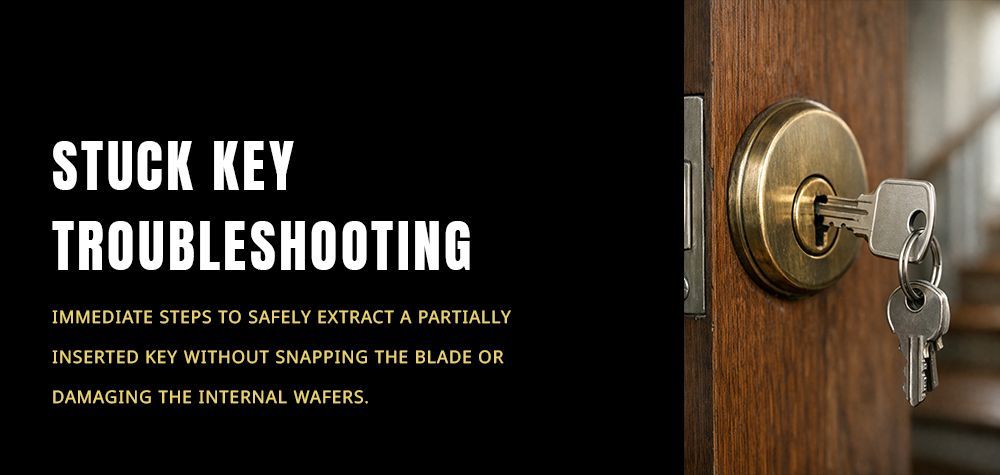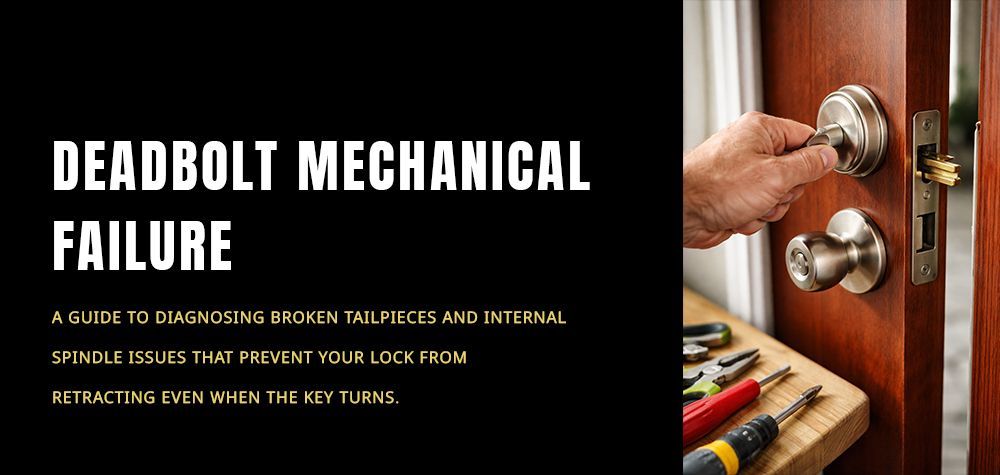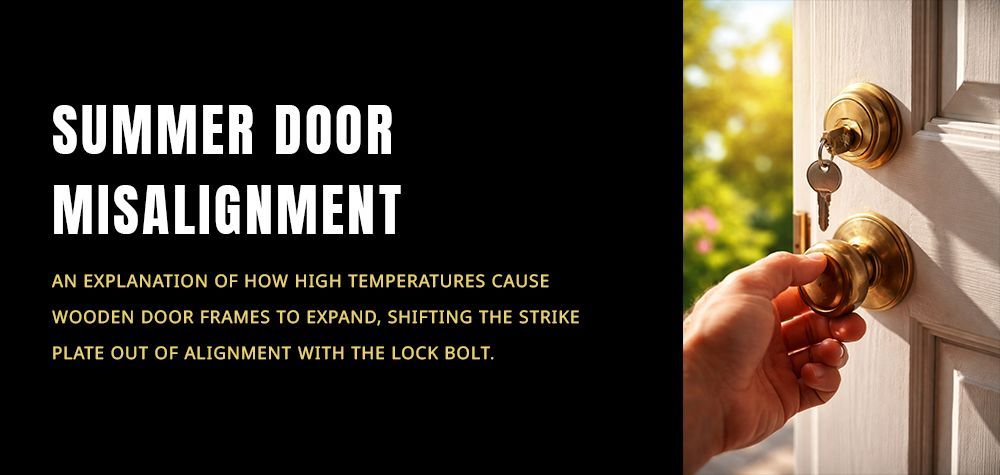How to Tell If Your Car Door Lock Actuator Is Failing
Your car’s locking system might seem like a simple push-and-click convenience, but behind the scenes, there’s a tiny but mighty component doing all the heavy lifting: the door lock actuator. Every time you press that lock button on your key fob or door panel, this small motorized mechanism engages or disengages the door latch. It’s a crucial part of your vehicle’s security system—and when it starts to fail, you might not even notice at first.
But ignoring the warning signs can lead to a host of headaches, from being locked out of your car to security vulnerabilities you didn’t see coming.
In this guide, we’ll take a deep dive into how to tell if your car door lock actuator is failing, the risks involved, and what you can do about it before you end up stranded—or worse, compromised.
Best anti-theft car lock devices!
What Is a Car Door Lock Actuator?
Before we dive into the signs of trouble, let’s get a quick understanding of what this component actually does. The door lock actuator is an electric motor housed inside the door panel. It’s responsible for locking and unlocking the door by moving a series of rods and levers connected to the latch mechanism. It operates every time you lock or unlock your doors—manually, remotely, or via automatic locking systems.
If it malfunctions, the electronic signals that tell your doors to lock or unlock simply stop working properly. And that’s where things start to go wrong.
Common Symptoms of a Failing Door Lock Actuator
Recognizing a bad actuator early can save you a lot of hassle. Let’s look at some of the most common warning signs that your actuator might be on the decline.
Unusual Noises When Locking or Unlocking
One of the earliest signs is a strange noise coming from inside the door when you use your key fob or interior lock button. If you hear clicking, grinding, or a faint buzzing sound, chances are the actuator motor is struggling to do its job. The gears might be wearing down, or the motor could be burning out.
This isn’t just an annoyance—those sounds are your actuator crying out for help.
Inconsistent Lock/Unlock Behavior
Sometimes it works, sometimes it doesn’t. If your door locks are acting unpredictably, such as only locking occasionally or requiring multiple attempts, the actuator may be losing power or connection. This intermittent behavior is a sure sign that a full failure is on the horizon.
And let’s face it—“sometimes” secure isn’t secure at all.
One Door Not Responding
If only one door isn’t locking or unlocking while the others work fine, you’re likely looking at a localized actuator issue. Each door has its own actuator, so a failure in one doesn’t necessarily affect the others. This is particularly common in rear passenger doors.
Ignoring a single failing actuator often leads to more failures later on—address it early.
Manual Lock Still Works, But Not Electronic
If you can manually lock and unlock the door using the key or lock knob, but the electronic system doesn’t respond, that’s a dead giveaway that the actuator is failing while the rest of the mechanism is still intact. This often goes unnoticed, especially in older cars, until it fails completely.
What Causes a Door Lock Actuator to Fail?
Knowing what causes an actuator to give out can help you avoid future problems. The main culprits tend to be:
Age and Wear
Like any motorized part, actuators wear down over time. The constant movement every time you lock or unlock the car adds up—especially if you drive daily or rely heavily on automatic locking systems.
Moisture and Corrosion
Since actuators are located inside the door, they’re exposed to changes in temperature and moisture. Water intrusion from rain, snow, or a faulty weather seal can corrode the actuator or its electrical connections, leading to failure.
Electrical Problems
A blown fuse, wiring issue, or a bad relay can cut power to the actuator, causing it to stop working. Sometimes the actuator is perfectly fine, but it isn’t receiving the signal it needs.
Physical Damage
In some cases, slamming doors, accidents, or tampering can physically damage the actuator or the rods it connects to. A misaligned door or broken latch can also impact the actuator’s function.
Locksmith’s guide to dealing with flooded car locks.
Risks of Ignoring a Failing Actuator
You might be tempted to live with the problem—especially if it only affects one door. But that decision can come back to bite you. Here’s why:
Security Vulnerabilities
A malfunctioning actuator can leave one or more doors unlocked without you realizing it. If you rely on your key fob or central locking system, you might assume all doors are secure when in reality, they’re not. That’s an open door—literally—for theft.
Inconvenience and Frustration
Getting locked out, or having to manually lock one door while the rest respond electronically, is frustrating. It’s also a major hassle if your trunk or driver’s door becomes unreliable.
Electrical Drain
A faulty actuator can continue drawing power from the battery even when the vehicle is off. Over time, this can drain your battery and leave you with a car that won’t start.
Step-by-Step: What to Do If You Suspect a Bad Actuator
If you’ve noticed some of the signs above, it’s time to take action. Here’s how to handle it smartly and safely:
Step 1: Confirm the Problem
Start by testing each door lock individually. Use both the remote key and the interior switch. If one door consistently fails or behaves differently, that’s likely your culprit.
Also, try locking and unlocking the door manually. If the manual lock works fine but the power lock doesn’t respond, your actuator is probably faulty.
Step 2: Listen for Sounds
Quiet the surroundings and press the lock/unlock button. Listen closely near the affected door. If you hear buzzing, clicking, or nothing at all, the sound can clue you in to whether the motor is struggling or completely dead.
Step 3: Check Fuses and Wiring
If none of your door locks work, check the fuse box and wiring for blown fuses or disconnected leads. A failed actuator usually affects one door, but a broader electrical issue could impact all.
Step 4: Consult a Locksmith or Mechanic
Replacing an actuator involves removing the door panel, carefully disconnecting electrical components, and installing a new part. It’s not impossible as a DIY project, but for most drivers, it’s easier and safer to trust a professional locksmith or automotive technician.
A locksmith specializing in automotive services can not only replace the actuator but inspect the full locking system for signs of wear, wiring issues, or tampering.
Preventive Measures: How to Avoid Future Actuator Failures
While you can’t stop time, you can reduce the chances of actuator failure with a few simple habits:
Keep your doors clean and dry. Regularly check door seals and weather stripping to prevent water intrusion.
Avoid slamming doors. It stresses the entire mechanism and can shorten the life of internal components, including the actuator.
Pay attention to early warning signs. If you hear strange sounds or notice odd behavior in your locks, act early before it escalates into full failure.
Have your locking system checked during routine maintenance. A trained technician can often spot small issues before they turn into major ones.
Final Thoughts: Don’t Let a Small Part Compromise Your Security
Your car’s door lock actuator may be out of sight, but it should never be out of mind. It's easy to ignore a clicking sound or one stubborn door—until the day your car won’t unlock, or worse, doesn’t lock at all. Whether you’re driving alone or protecting your family and valuables, peace of mind starts with reliable door locks.
If you suspect your actuator is on the fritz, don’t wait. Take the time to check, confirm, and fix the issue before it leaves you vulnerable or stranded. And remember, your trusted locksmith isn’t just for home or office security—they’ve got your back on the road, too.
Need help with your car locks or actuator replacement? Reach out to our expert automotive locksmiths—we’re here to make sure your ride stays secure, safe, and stress-free.
Call Us Any Time!







